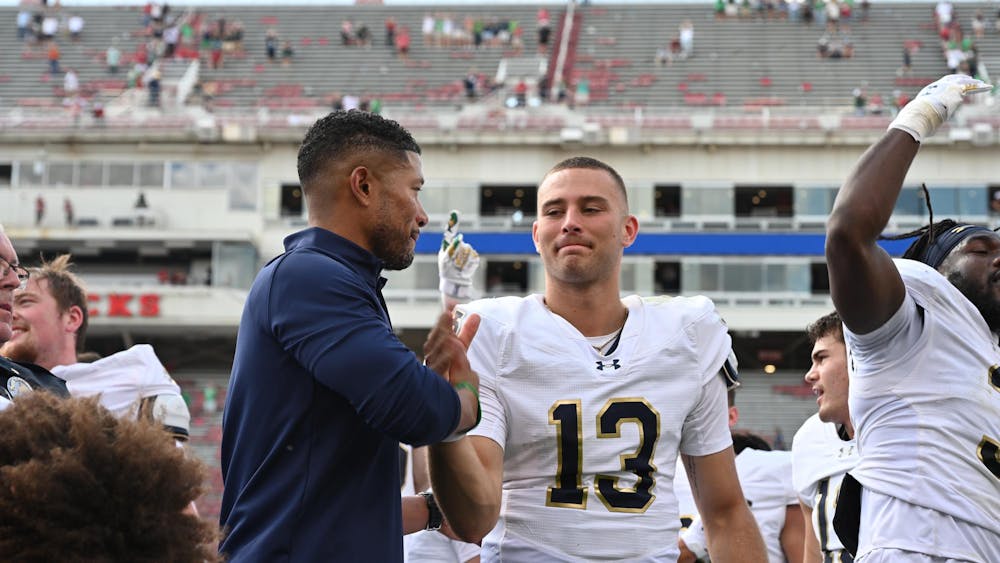There is no shortage of players who are to blame for the current economic crisis, Notre Dame alum John Russell said in his lecture, "The Ethical Implications of the Recent Financial Crisis," on Wednesday.
Russell was joined by the Department of Finance's Executive in Residence Jerry Langley and Director of the Center for Religious Values and Ethics in Business Rev. Oliver Williams to reflect on the recent financial meltdown, the poor decisions that caused it and the implications of those decisions for business ethics, as part of the Berges Lecture Series.
"The genesis of ethical errors that helped cause the crisis is rooted in two age-old themes: greed and pride," Russell said. "These two sins are at the center of every business ethics situation."
The "pursuit of power and prestige," Russell said, created a market that was undercut by excessive risk taking, unsustainable expansion for credit, poor judgment, lack of oversight and lack of a moral compass.
Among the parties involved, Russell blamed homeowners for their shortsighted behavior, which lead to irresponsible spending and overreliance on the government.
"America is all about accumulation," Russell said. "Keeping up with the Jones's, that is the game that most people play here. People are buying too much and saving nothing, and these are the seeds to an economic crisis."
Deceitful mortgage brokers, the Federal Reserve Bank, Wall Street, rating agencies, local and global investors and the government were among the other parties that Russell blamed.
"All of these groups bear responsibility," Russell said. "Unfortunately, the problems that were occurring in each group spread to the entire economy and now, we are all paying the price."
According to Russell, the key question that remains in this financial crisis, which he sees as a moral dilemma at the core is: Will the human condition be able to change?
"The question is how did so many good people contribute to such serious harm?" Williams said. "As an ethicist, this problem has deeply concerned all of us."
Williams argued that poor business decisions were not reflections of poor integrity, but rather self-deception.
"The role of ethics is to give us a sense of who we are, the sort of people we should try to become, the sort of communities we should try to build," Williams said. "This is what was lost in the financial crisis. Self-deception really took over."
It is possible for very intelligent and rational people to have their vision clouded, Langley said. "Having a solid foundation in ethics prevents this."
In terms of reforming the market, the speakers confronted whether or not we can overcome our personal desires for greed and pride.
"We met the enemy." Williams said. "It's us."









